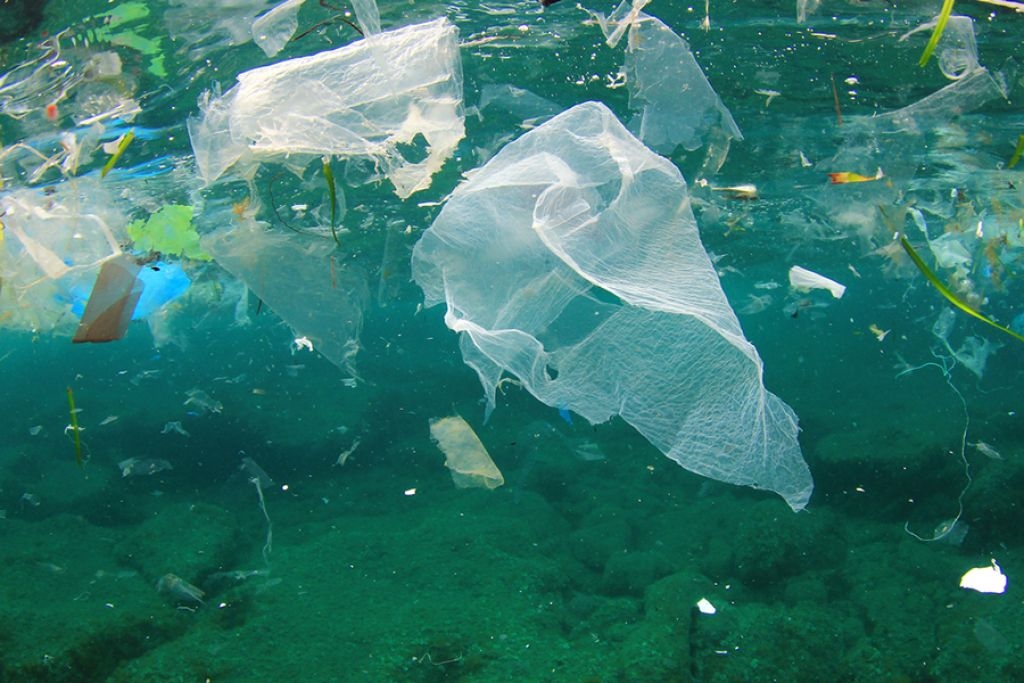Oregon’s plastic bag ban takes effect Jan. 1. What Oregon grocers and shoppers can expect from the wide-sweeping legislation.
More than 100,000 sea animals are killed each year by plastic pollution, and despite efforts by conservationists, only one in seven plastic bags get recycled. For this reason, some states, including Oregon, have decided to pursue legal action to protect marine life.
This year House Bill 2509, which outlaws the use of singe-use plastic bags statewide, was signed into law by Governor Kate Brown. The ban will take effect on January 1.
In addition to banning single-use plastic bags, shoppers who don’t bring reusable bags will be charged five cents for each recyclable paper bag they carry out.
Sixteen Oregon cities, including Ashland, Eugene, Corvallis and Portland, have done away with single-use plastic bags already. The City of Eugene has taken the fight even further with an ordinance limiting the accessibility of single-use plastic utensils.
Not included in the ban are bags for produce, nuts and greeting cards.
Grocery stores contacted for this article, including Fred Meyer, one of the largest grocery store chains in the state, did not respond or declined to give an official response.
While some retailers and consumers will not notice the effects of the ban immediately, such a large-scale measure is bound to have economic impacts.
These impacts may be foreseeable, since other states have banned the plastic bag already.
California, which banned single-use plastic bags in 2016, saw a spike in the number of plastic products that were excluded from the ban, namely trash bags.
In a 2019 study assessing the impacts of the California plastic bag ban, plastic trash bags saw a 120% increase in sales in the months following the ban.
However the study also found the ban did what it was intended to do, namely decrease the amount of plastic pollution. The California ban saw a reduction of 40 million pounds of plastic waste following the bag ban, though 12 million more pounds of trash bags were purchased, offsetting the gains.
Dr. Thomas Potiowsky, chair of the Economics Department at Portland State University, says that while the bill is a step in the right direction, more measures will likely be needed to curb plastic use.
“Often well-intentioned policies have unintended consequences,” he says, noting that grocery stores may well see an uptick in revenue as consumers purchase plastic products to compensate for the bags they no longer get for free.
“Getting people to change their behavior is going to be more difficult. Some may start buying plastic bags. I actually see grocery stores making more money from the ban,” says the economist.
The evidence seems to suggest the bag ban will not end single-use plastic bags entirely, but it will likely have an impact on how much plastic shoppers in Oregon use. The extent of that impact will depend on what people choose to use as alternatives.
While the plastic bag ban may not eliminate plastic pollution entirely, studies from other states and countries that have passed similar legislation suggest the ban will certainly have an impact. Just how much remains to be seen, but if shoppers still want to use plastic bags, they won’t be able to do so for free.
To subscribe to Oregon Business, click here.





